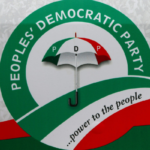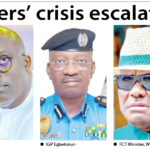As a parent, imagine my shock when I learned that some private schools in Abuja had ended their school term as early as the 2nd of December. They had started exams in November and wrapped up by the second day of December. A simple inquiry led to one painful conclusion—the schools didn’t want to pay December wages to their staff.
So they wrapped up the academic year early and sent the children home. Well, not really. Because the schools then invited parents to return their children for extra lessons, for another fee. I said, “Wait fes, make I understand this thing wella.”
After being paid a full term’s fees, the schools cut short the academic calendar first to avoid paying the staff a salary for a festive month like December, then they wanted parents to pay extra fees for extra lessons that the students should have been having if the school had remained in session as per the regular calendar? The math wasn’t mathing.
You see, Nigeria has an education problem. That, of course, is not news since everyone with half a brain knows that. Everyone knows of the 12 million out-of-school children in the country and the continued ruination of public education and public schools in the country. What we have often not talked about is the massive, country-sized private school problem we have.
- ‘72.1m people displaced globally in half year 2024’
- NBA, NSCDC clash in Kwara over alleged humiliation of chairman
Private schools used to be very rare when we were growing up. Today, they are a kobo a dozen, as worthless as the kobo has become. The proliferation of low, medium, and high-cost private schools is perhaps comparable only to the sprouting of prosperity-preaching houses in the country. The two have one thing in common—the lax regulation and supervision of both institutions.
Not only are schools not worth the name being licenced to operate, sometimes in uncompleted, non-purpose-built structures, but even the ones that have the facilities have operated sometimes without requisite supervision.
Of course, the problem is that the Nigerian state has treated the education sector with apathy, as demonstrated by the state of public schools in the country from primary to tertiary institutions. The nickname, shakura (bathe in dust), has become synonymous with dilapidated public schools with gaping windows, lacking desks, and dusty fields. This neglect created room for private entrepreneurs to step in and provide important services. In reality, a lot of them—not all of them, mind you—are more focused on profit than pedagogy.
There are some main problems faced and posed by private schools. One is the cost. High-cost schools are unaffordable to many Nigerians. Some high and medium-cost private schools charge exorbitant amounts, sometimes millions, per term to teach three-year-old children the alphabet. Yet some parents would rather keep their children in high-cost private schools even if their earnings can’t cover the fees. Status symbol or pride? Or just a desire to give their children the best? This has often seen some parents taking loans to pay ridiculous school fees for their children or looting public funds to maintain their children in these schools.
Another major problem with private schools is regulatory oversight. This is hinged on the general neglect the education system suffers and the desperation people have developed to profit from the failing system. Some of these regulatory oversights we see have resulted in charlatans opening schools without proper structures or qualified personnel on the ground to teach students. The curriculum is often arbitrary.
The risks this portends for both parents and students are multifaceted. Many Nigerians will remember school proprietor Abdulmalik Tanko, who in 2022 abducted and brutally murdered his five-year-old pupil, Hanifa Abubakar, after he had demanded ransom from her parents. Mr Tanko has been sentenced to death by a court of law in Kano, and it would seem justice has been done in the matter.
However, the systemic failures that allowed someone like that to run a school and be entrusted with vulnerable children by desperate parents, and the way the school was allowed to run on a shoestring budget without regulatory oversight, are still evident today. These systemic failures may just be cooking up the next Mr Tanko.
The lack of standardisation is not only a problem in low and medium-cost private schools but in high-cost ones as well. Some school proprietors have found ways of cutting corners and sometimes paying off relevant supervisory officers, most of whom—not all—are more concerned about making money than regulating the sector. The result is significant variations in the curriculum, teaching methods, and overall educational outcomes.
While many of these schools operate without proper registration and accreditation, which raises concerns about the quality and legitimacy of the education they provide, there are legitimate safety concerns for the students. Instances of bullying, abuse, and suspicious deaths have been recorded even in high-end private schools.
Through cutting corners, we have recorded national tragedies like the Jos school building collapse which claimed the lives of 22 persons earlier this year. With proper inspection and monitoring, housing students in buildings verging on collapse could have been avoided.
Add to these problems the teacher quality and retention issues in private schools. A lot of the people who find themselves in the teaching profession today see it as a rest stop on the way to hopefully securing better jobs. A good number of them lack the competence and passion to discharge their duties. Many schools employ underqualified teachers to cut costs, which affects the quality of education. As far as some of these proprietors are concerned, the teachers are cannon fodder for their gluttonous dreams.
Poor working conditions, low salaries, and lack of professional development opportunities have led to high teacher turnover in most private schools. The Nigerian Union of Teachers must, as a matter of urgency, ensure better working conditions and pay for teachers in private schools, ensuring standards in teacher quality and better protection from proprietors who use them as tissues to handle the necessary business and then discard them. There is a reason the private sector, including private schools, dreads unionisation.
To address these massive irregularities in the school system, the Ministry of Education and various education boards need to up their game to ensure the standardisation of practice and facilities and the harmonisation of school curricula and calendars. Along with strengthening the regulatory framework governing private schools, regular inspections, accreditation processes, and enforcement of regulations must be pursued diligently.
There must be a minimum standard of care that should be in place to ensure that Nigerian children receive the right education that the Nigerian state is increasingly failing to guarantee in public schools.
There must be a mechanism in place to protect employees of private schools from wanton exploitation by school proprietors. Someone needs to ensure that teachers, whether in public or private employment, are not cheated out of their wages. While understandably most of these teachers are not professionally trained for the roles—since we don’t seem to incentivise people enough to commit their lifetime to teaching—some of them are educated in other areas. They are entitled to a livelihood and job opportunities.
Their foray into teaching is not just a temporary solution for them, but also for the country, which absolutely needs teachers as much as these people need jobs. Establishing continuous professional development programmes for teachers can enhance their skills and improve the quality of education they can deliver while in the role.
However, the greatest service Nigeria can render to Nigerians is to revive public education, refurbish public schools, and improve working conditions for teachers. If this is done, then public schools can be held to the same standard as private schools.
Private schools play a crucial role in the country’s educational landscape. They are providing much-needed relief where the government is failing with public education.
However, the greatest disservice we can do to this country is to fail public education only to then allow private education to run wild as a business that exploits students, parents, and teachers. While we struggle with the painful realities of today’s Nigeria, the education of future Nigerians must not be allowed to fall to complete ruin. We simply can’t burn tomorrow today.

 Join Daily Trust WhatsApp Community For Quick Access To News and Happenings Around You.
Join Daily Trust WhatsApp Community For Quick Access To News and Happenings Around You.


